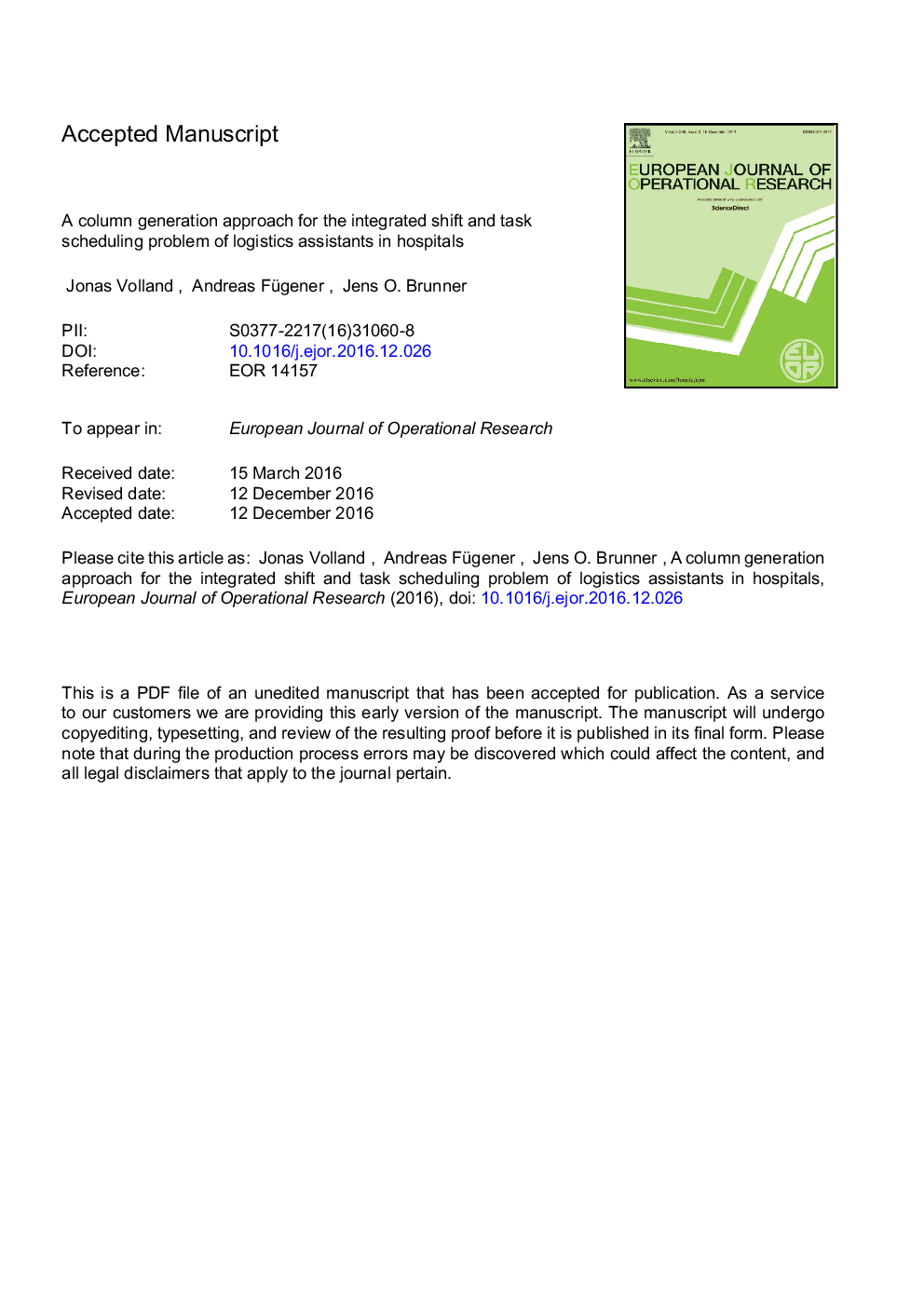| Article ID | Journal | Published Year | Pages | File Type |
|---|---|---|---|---|
| 4959899 | European Journal of Operational Research | 2017 | 44 Pages |
Abstract
In order to cope with steadily increasing healthcare costs, hospitals introduce a new type of employee taking over logistics tasks from specialized nurses, namely logistics assistants. In the light of the introduction, hospitals are faced with the question of dimensioning their number. We present a mixed-integer program that allows defining the optimal number of logistics assistants, given predefined task requirements. We combine flexible shift scheduling with a task scheduling problem. We incorporate flexibility both in terms of shift scheduling as well as task scheduling in order to define the minimum number of workers. We present a column generation based solution approach that finds optimal solutions, and compare decomposition approaches with one and two subproblems. Neither the general model nor the solution approach are limited to logistics assistants but can also be applied to other problem settings in the healthcare industry and beyond. The approach is tested with 48 problem instances in total and compared to benchmarks. As part of our solution approach, we present a lower bound for staff minimization problems with an unknown number of available workers. We show that flexibility in shift scheduling and task scheduling leads to a decrease of 40-49% of the required workforce, compared to the non-flexible case.
Related Topics
Physical Sciences and Engineering
Computer Science
Computer Science (General)
Authors
Jonas Volland, Andreas Fügener, Jens O. Brunner,
